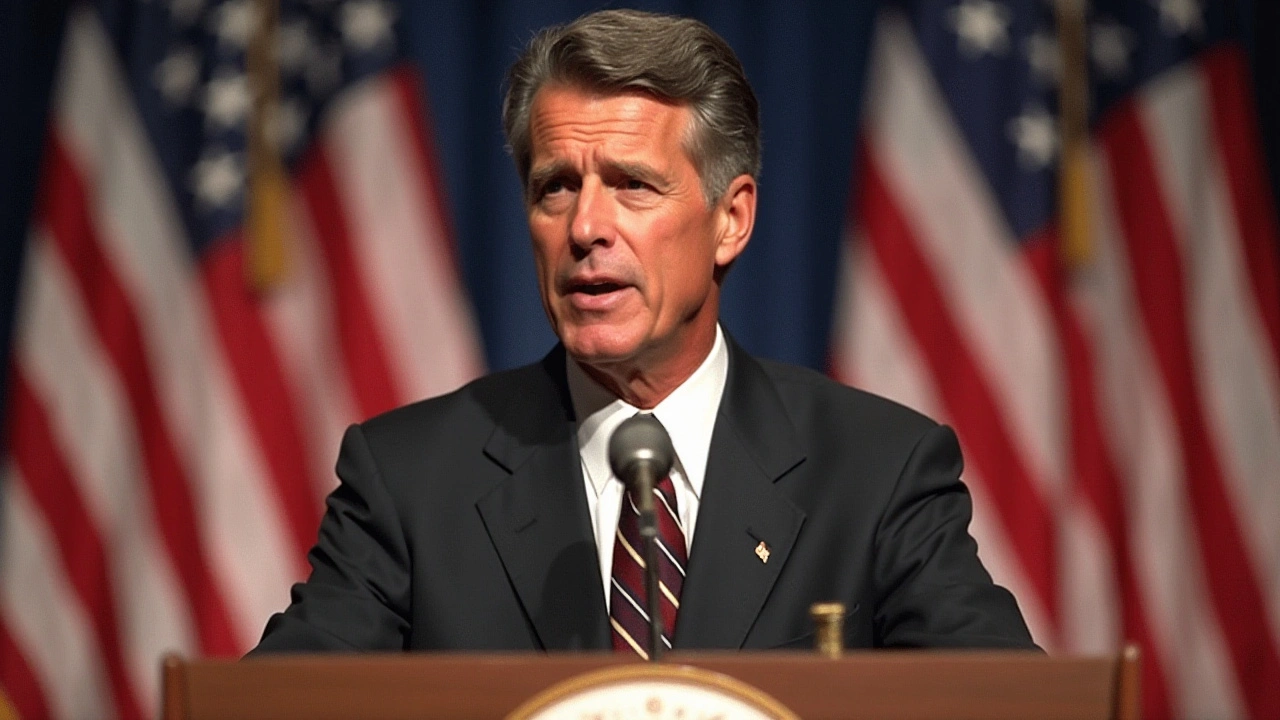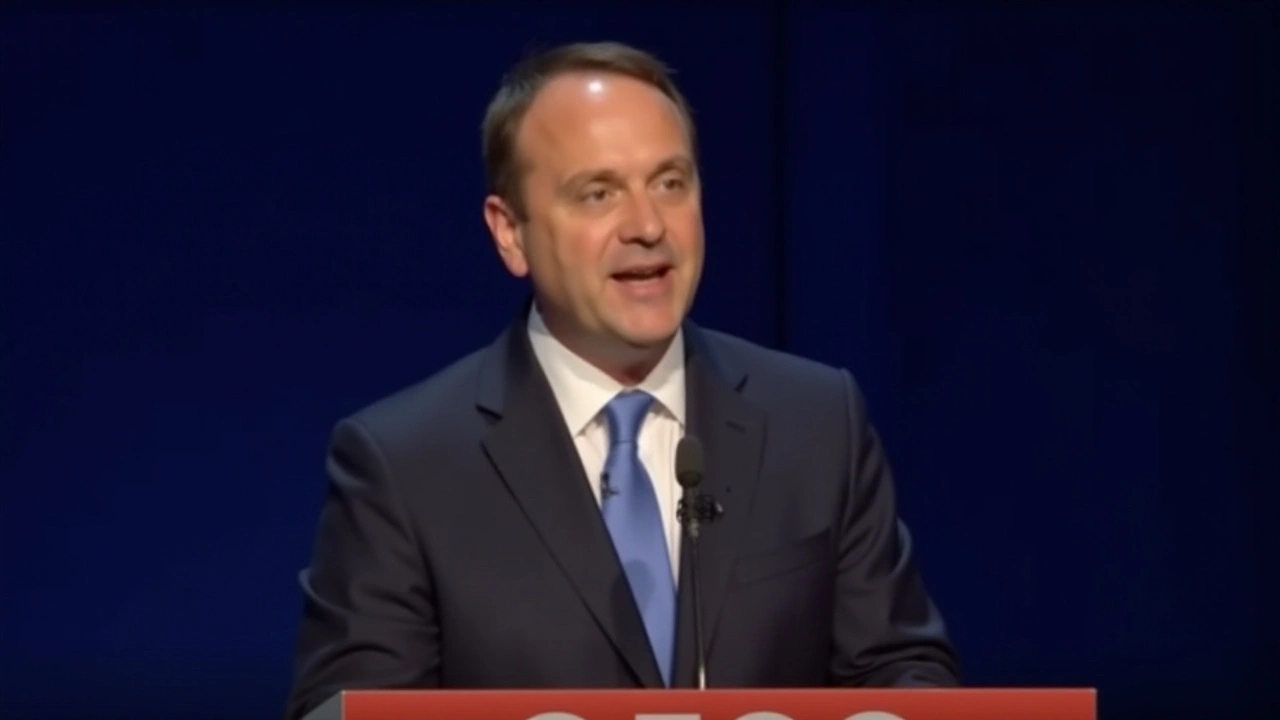
RFK Jr. Ends Presidential Bid and Endorses Trump, Signaling Major Political Shift
In a dramatic and unexpected development in the political arena, Robert F. Kennedy Jr. has announced the suspension of his independent presidential campaign. The prominent figure, known for his deep-rooted connections to the Democratic Kennedy family, has chosen to endorse Republican nominee Donald Trump. This decision was revealed just before a rally in Arizona, where Kennedy made a brief appearance alongside Trump. This move marks a significant shift in the current political landscape, given Kennedy's previous criticisms of Trump and their conflicting views, particularly on climate change.
Kennedy had been running an independent bid for the presidency but faced substantial difficulties in gaining considerable momentum. His campaign struggled particularly after Vice President Kamala Harris emerged as the Democratic nominee. Kennedy's performances in polls had been less than promising, making this endorsement a strategic, albeit surprising, move. According to Experts, Kennedy's average polling hovered around 5%, with a notable 12% of independents backing him. However, the overall impact on the electorate could potentially be limited.
The endorsement decision follows prolonged discussions between both Kennedy's and Trump's campaigns. An intriguing aspect of this collaboration is Trump's willingness to consider appointing Kennedy to a role within his administration. Particularly, there is speculation about Kennedy potentially serving as the Secretary of Health and Human Services, given his active interest in health-related issues. Kennedy's expertise in the health sector, despite his controversial views, appears to be a key consideration for this potential appointment.
Shifting Political Alliances and Implications
Although Robert F. Kennedy Jr. has not always been aligned with the key aspects of Trump's political agenda, certain mutual agreements or 'quid pro quo' arrangements seem to have facilitated this surprising endorsement. Nicole Shanahan, Kennedy's running mate, had also hinted at possible collaborations with Trump, which has now become a reality.
The political implications of this endorsement are noteworthy. Kennedy's shift to Trump's camp is likely to marginally benefit Trump, especially among independent voters. With Kennedy's supporters primarily being independents, the potential gain for Trump could be around one or two percentage points. However, political analysts caution that many of Kennedy's supporters might still choose not to vote or might redirect their support to another third-party candidate.
The broader significance of Kennedy's endorsement cannot be understated. Coming from a prominent Democratic family, Kennedy's newfound alignment with Trump underscores an unusual political repositioning. It adds a layer of complexity to an already unpredictable electoral landscape. Kennedy's decision is expected to stir varied reactions within political circles, considering his family's traditional stronghold and his previous public stance against Trump's policies.
Examining the Background and Motivations
Robert F. Kennedy Jr.'s background as a passionate advocate for environmental causes and public health issues is widely recognized. His independent campaign, although not impactful in shifting the mainstream political narrative, aimed at raising awareness on diverse issues such as environmental conservation and vaccine safety. Having been an outspoken critic of Trump’s environmental policies, his endorsement might seem contradictory to many. However, it's worth noting that Kennedy’s interests in health and vaccines appear to align with Trump's openness to considering alternate perspectives within his administration.
Despite their ideological differences, especially on environmental policies, Kennedy's alignment with Trump hints at an underlying strategic partnership. This development sheds light on the intricate dynamics that shape modern political collaborations. Kennedy's potential role as Secretary of Health and Human Services, if materialized, could bring forward policy dialogues that encompass a broader spectrum of health-related issues.
The Possible Impact on the 2024 Elections
The 2024 presidential elections are already seeing intense competition, and this new endorsement only adds to the complexities. With Vice President Kamala Harris representing the Democrats and Trump fortified with Kennedy’s endorsement, the electoral contest is set to be fiercer. Kennedy's exit from the race removes an independent contender but introduces a twist in voter dynamics, especially among independents.
For many independents and undecided voters, Kennedy's endorsement might sway some to Trump’s side. Although the predicted impact on the voter base is minimal, every percentage point counts in a closely contested election. However, there is also speculation that some of Kennedy's followers might diverge to support other third-party candidates or possibly abstain from voting altogether, making the real impact somewhat unpredictable.
This significant political maneuver has already sparked extensive debates and speculations. With Kennedy’s historical prominence and longstanding family legacy in Democratic politics, his endorsement of Trump might influence a segment of voters who have aligned themselves with Kennedy’s broader ideals.

Conclusion: A Transformative Political Move
Robert F. Kennedy Jr.'s endorsement of Donald Trump signifies a considerable shift in the political landscape, highlighting the unpredictable nature of electoral partnerships and strategies. Kennedy's departure from his campaign to support Trump, despite their ideological differences, showcases the complex dynamics and strategic alliances that define contemporary politics.
As the 2024 elections approach, this endorsement opens up new discussions on voter behavior, the impact of endorsements, and the strategic reshaping of political narratives. Whether this move will significantly benefit Trump or create new ripples among independent voters remains to be seen. However, it undoubtedly marks a pivotal moment in the evolving political discourse.





